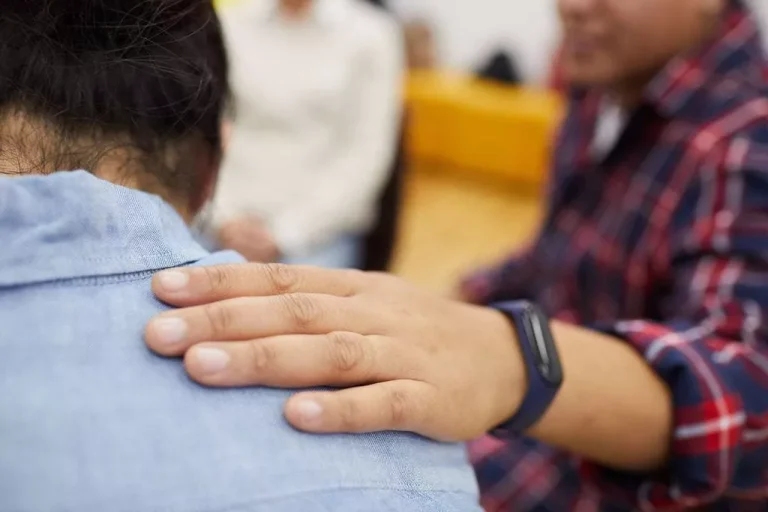
Beta-blockers are a commonly prescribed medication used to lower blood pressure, protect against heart attacks, and treat various heart-related conditions. They’re also prescribed off-label for glaucoma, migraine, and anxiety. Beta-blockers are used to reduce the speed of your heartbeat and lower your blood pressure. They do so by preventing the hormone adrenaline, as well as other stress hormones, from binding to beta receptors throughout your body. It’s used to treat heart problems, help with some of the symptoms of anxiety and prevent migraines.
- Reducing the effects of epinephrine on the body may also reduce the intensity of anxiety.
- Our writers include physicians, pharmacists, and registered nurses with firsthand clinical experience.
- Some beta-blockers work only on the heart itself, while others affect the heart and blood vessels.
- We talked with psychiatrist Jack Owens, MD, about how beta-blockers work for some people who experience short-lived anxiety in specific situations.
- Off-label prescribing is a legal practice and is medically acceptable and justified when evidence shows a medication has a low risk of causing harmful side effects and is effective for off-label use.
- During the first few days of taking propranolol or after an increase in your dose, it’s best to stop drinking alcohol until you see how the medicine affects you.
What do beta receptors control?

When you are anxious, your brain makes chemical messengers called adrenaline and noradrenaline. Along with go-to treatments like cognitive behavioral therapy (CBT) and antidepressants, beta-blockers may help you manage your anxiety symptoms. Another study found that the calming effects of an atenolol-combination drug on patients prior to medical procedures were significant.
Types of beta-blockers
While alcohol consumption may provide temporary relief from anxiety in highly shy individuals, it leads to a significant increase in anxiety the following day. However, beta-blockers may can drinking alcohol cause panic attacks worsen certain health conditions, including asthma, Raynaud’s phenomenon, and depression. They may also interact with some medications, such as NSAIDs and medications for diabetes.

Social Media

Some people, including those living with asthma, COPD (chronic obstructive pulmonary disease) or diabetes shouldn’t take beta-blockers. By Sara Hoffman, PharmDHoffman is a Kansas-based clinical pharmacist with experience working in hospitals, specialty clinics, and community pharmacies. https://ecosoberhouse.com/article/5-alcoholic-types-in-alcoholism/ While beta-blockers are generally safe, certain people shouldn’t take them. Contact your doctor right away if you experience any of the following. If you have just started taking a new medication such as a beta-blocker, you may be wondering how it may interact with alcohol.
- They can do a psychological assessment (with the GAD-7 form for anxiety or PHQ-9 survey for depression) to help figure out the underlying cause of your symptoms.
- Healthcare professionals may prescribe beta-blockers to provide symptomatic relief while waiting for other hyperthyroidism treatments, such as antithyroid medications or radioactive iodine therapy, to take effect.
- A 2016 review of existing research about using short-term propranolol for treating different anxiety disorders found that its effects were similar to those of benzodiazepines.
- Antihistamines are generally well-tolerated, aside from adverse effects like dry mouth, constipation, sedation, and risks of use while driving.
- Beta-blockers can be helpful in managing symptoms for some people with anxiety.
Natural Ways to Lower Your Blood Pressure
Read on to learn more about how beta-blockers impact anxiety, and whether they could work for you. Beta-blockers can prevent adrenaline from making your heart beat faster or harder. Some doctors may prescribe them for anxiety, but they may not be right for everyone. In one study of metoprolol, researchers looked at the interaction of alcohol and the beta-blocker in a lab. At the 2-hour mark, they found that the capsule had released 89% of the drug with 40% alcohol compared with just 17% with 5% alcohol.
- If you drink while taking a beta-blocker and develop any of the symptoms mentioned in this article, you should see your doctor.
- “It’s really important that people taking medications be in touch with their healthcare team, so that they can be aware of how the medications might be reducing their ability to cope with the very hot days,” he said.
- Both preclinical and clinical studies have demonstrated evidence of aberrant neurosteroid homeostasis in anxiety disorders (218).
- The anxiolytic effects observed with CBD are in contrast to the anxiogenic effects induced by delta-9-tetrahydrocannabinol (229).
They include amitriptyline, sodium valproate and gabapentin and they may have different side effects. Beta blockers are not usually the first choice for high blood pressure. The medicine your doctor prescribes depends on your age and ethnicity. It may work by relaxing the blood vessels involved, or by reducing activity in the visual cortex. Like all medicines, propranolol can cause side effects in some people, but many people have no side effects or only minor ones.